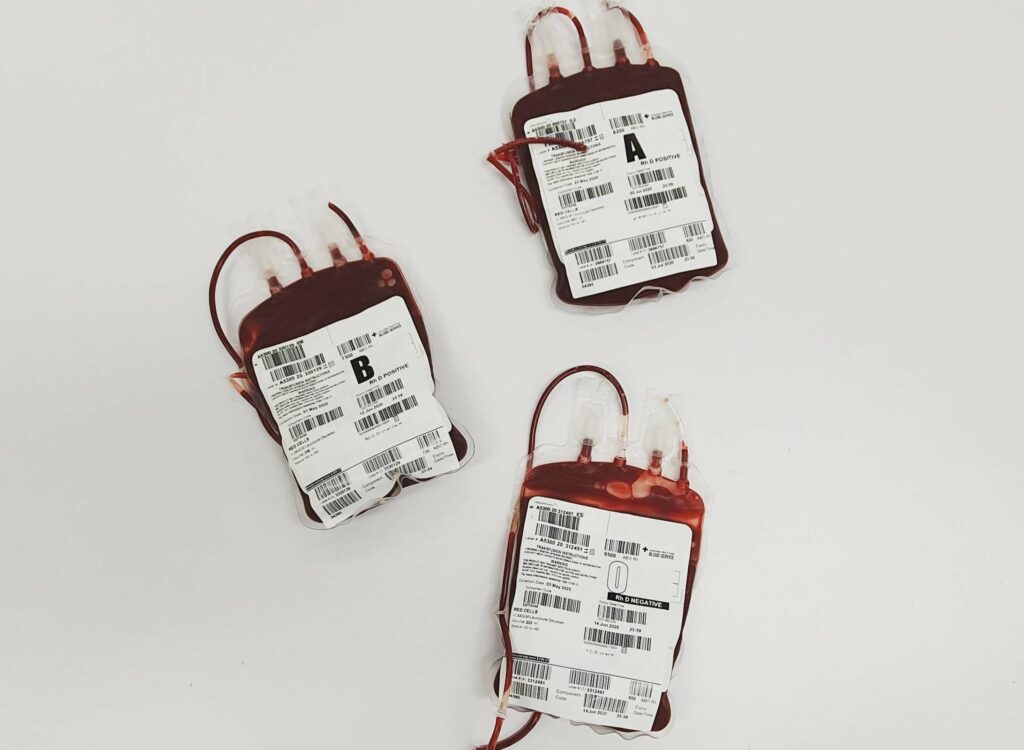We all have ways of dealing with stressful situations or unpleasant emotions. Some of us choose to confront the issue head-on, while others may go into denial. But there’s a specific defense mechanism that has piqued my interest lately – it’s called projection.
For many people, projection is an unconscious process where they assign their own undesirable thoughts, feelings, or motives onto someone else. Let’s say you’re feeling guilty about something you’ve done. Instead of acknowledging this guilt and dealing with it directly, you might project these feelings onto another person, accusing them of having done something wrong instead.
It can be a slippery slope because while projection can provide temporary relief from uncomfortable emotions, it could also lead to strained relationships and an unhealthy mental state if not identified and addressed appropriately. As we delve deeper into this psychological phenomenon in the following sections, I’ll aim to shed some light on how projection works and why it’s such a common defense mechanism we turn to.
Understanding the Projection Defense Mechanism
I’m sure we’ve all heard the saying “You’re just projecting!” But what does it truly mean? Well, in the realm of psychology, projection is a defense mechanism that involves attributing our own unacceptable feelings or thoughts onto someone else. It’s like a psychological mirror – reflecting our hidden selves onto others.
Let’s delve deeper into this fascinating concept. Imagine you’re feeling particularly guilty about not visiting your elderly parents often enough. Instead of acknowledging these feelings, you might start accusing your siblings of neglecting them. That’s projection – when we can’t handle our emotions, we subconsciously ‘project’ them onto someone else.
But why do we do this? The theory behind projection stems from Sigmund Freud’s work in psychoanalysis. He suggested that this defense mechanism helps us avoid confronting uncomfortable feelings within ourselves; it’s easier to see faults in others than accept them in ourselves.
Though everyone projects to some extent (it’s part of being human!), excessive use of this defense mechanism can be harmful and indicative of deeper emotional issues. People with certain personality disorders, like narcissistic personality disorder or borderline personality disorder, are more likely to use projection regularly.
However, understanding and recognizing projection can be incredibly beneficial for personal growth and improving interpersonal relationships. By identifying when we’re projecting instead of dealing with our emotions directly, we gain better insight into ourselves and take steps towards healthier coping mechanisms.
Just remember – next time you find yourself pointing fingers at others; take a moment to reflect on whether those criticisms are something you need to address within yourself!
Origins and Development of Projection in Psychology
The concept of projection isn’t a new one. It’s been around since the time of Freud, who initially coined the term. He described it as a defense mechanism people use to deal with uncomfortable feelings or thoughts. According to him, we project those unsettling emotions onto someone else rather than dealing with them ourselves.
Projection’s roots are deeply entrenched in psychoanalysis, an area that Freud practically pioneered. In fact, you could even argue that this theory was revolutionary at the time. After all, it proposed that our minds were capable of such complex gymnastics to protect our self-esteem.
Over the years, though, things have changed quite a bit. Our understanding of psychology has evolved dramatically and so has our perspective on mechanisms like projection. Nowadays psychologists see projection less as a defense mechanism and more as a reflection of how we perceive others based on our own attributes and experiences.
For instance, if I’m feeling insecure about my job performance, I might assume my colleagues are doubting their abilities too. My thoughts aren’t really about them – they’re about me and my feelings.
There’s also been research showing that projection can be influenced by many factors including personality characteristics, current mood states and social context among other variables:
- Personality characteristics: Some studies suggest certain personality traits lead individuals more predisposed to using projection.
- Current mood states: If I’m feeling particularly anxious one day I might be more likely to project those feelings onto others.
- Social context: The way we perceive our environment can also play into how much we project onto others.
Much like any other psychological phenomenon though there’s still plenty left for us to explore when it comes to projection – its origins development implications and everything in between!
How Projection Works: An Overview
Delving into the realm of psychology, I’ve often found myself fascinated by the defense mechanisms our minds employ. One such mechanism that’s always intrigued me is projection. This psychological phenomenon, you see, acts like a mental mirror, reflecting our own insecurities and feelings onto others.
At its core, projection is all about denial – denying aspects of ourselves that we’re uncomfortable with or find too distressing to accept. We then attribute these unwanted feelings not to ourselves but onto someone else. For example, if you’re feeling particularly guilty about something but can’t quite face this guilt head-on, you might start seeing signs of guilt in those around you.
Interestingly enough, when we project onto others, it’s usually unconscious – meaning most folks aren’t even aware they’re doing it! You might be thinking now: “But how does this happen?” Well, one theory suggests it’s all tied up with early childhood experiences. It’s believed that as children when we experience negative emotions (like fear or anger), and don’t have the coping skills to deal with them yet; we tend to ‘project’ these feelings onto others.
Here are some common forms of projection:
- Neurotic Projection: The repressed aspect is seen in others.
- Complementary Projection: Assuming that others share the same thoughts or values.
- Complimentary Projection: Believing that other people can do things as well as oneself.
As complex as this defense mechanism may seem at first glance – and trust me it certainly has its complexities – understanding how projection works can help us develop greater self-awareness and healthier relationships. After all, once we recognize what we’re projecting and why…well…that’s half the battle won!
Real-Life Examples of Projection Defense Mechanism
Let’s dive in by looking at a common scenario. Have you ever noticed someone constantly accusing others of being dishonest? It’s quite possible that they’re struggling with their own unacknowledged dishonesty. They project it onto others because acknowledging it within themselves would create discomfort, a classic case of the projection defense mechanism.
Consider another example, one I’ve come across often in my research – jealousy. A person might be feeling intense jealousy but isn’t ready to admit this. Instead, they accuse their partner of being overly jealous. This way, they can deal with the difficult emotion without recognizing its presence within them.
Workplaces aren’t immune to projection either. For instance, an employee might feel incompetent and fear that others will notice this incompetence. In response, they may start pointing out the inadequacies in their colleagues’ work in an attempt to shift focus away from themselves.
To further illustrate:
| Real-life Scenario | Underlying Emotion | Projected Emotion | |
|---|---|---|---|
| 1 | Accusing others of dishonesty | Dishonesty | Dishonesty |
| 2 | Accusing partner of jealousy | Jealousy | Jealousy |
| 3 | Pointing out colleagues’ incompetencies | Incompetence | Incompetence |
Lastly, let’s not forget about social settings where we can see examples abound. Take for instance a person who feels insecure about their appearance or social standing. They might make snide comments about how other people look or dress up – projecting their insecurities onto others instead of confronting these feelings head-on.
In summing up these real-life examples, it becomes evident just how pervasive the use of projection as a defense mechanism is across various scenarios and contexts.
The Impact of Projection on Personal Relationships
Let’s delve right into how projection can influence personal relationships. It’s interesting to note that even though this defense mechanism is a subconscious process, its impacts are far from subtle.
To start with, projection can breed misunderstandings and conflict. Imagine you’re feeling guilty about something and instead of accepting it, you project this guilt onto your partner. You might start accusing them of the very thing you’re guilty of. This not only leads to confusion but also unnecessary fights where both parties feel wronged.
Next, we need to talk about trust – an essential ingredient for any healthy relationship. When someone constantly projects their insecurities or undesirable traits onto others, it may raise doubts in the recipient’s mind regarding the projector’s credibility or intentions. For instance:
- Your friend makes a mistake but blames you.
- Your spouse doesn’t keep their promises yet accuses you of being unreliable.
In such cases, trust can gradually erode leading to unstable relationships.
Thirdly, constant projection can cause emotional exhaustion. Being repeatedly accused or blamed for things one hasn’t done could weigh heavily on anyone’s mental health over time.
Now let me share some numbers here:
| Projection Frequency in Relationships (%) |
|---|
| Occasional (60-70% ) |
| Frequent (20-30%) |
| Constant (10-15%) |
The above table represents a rough estimate of how frequently individuals tend to project in their personal relationships based on several psychology studies – occasional being once every few months; frequent indicating weekly occurrences and constant referring to daily instances of projection.
Lastly, when looking at long-term impacts, projection has been associated with lower relationship satisfaction rates and higher breakup rates among couples. People who consistently project may find it challenging to maintain satisfying connections due to the aforementioned reasons: increased conflict levels, reduced trust and emotional exhaustion.
In essence, while projection can serve as a temporary shield against uncomfortable feelings, its side effects on personal relationships might leave one with more pain than relief. The good news is, with self-awareness and professional help if needed, it’s possible to reduce reliance on projection and build healthier relational dynamics.
Steps to Identify Your Own Defensive Projections
Let’s talk about recognizing our own defensive projections. It’s not the easiest task, but it’s definitely doable and can lead to a significant increase in self-awareness. Here are some steps you can follow.
The first thing you need to do is learn what projection looks like. When we’re projecting, we attribute characteristics or emotions that are actually ours onto others. For instance, if I’m feeling insecure about my work performance, I might accuse my coworker of doubting their capabilities.
Next up is self-reflection. After understanding what projection is, it’s time to turn inward. Ask yourself if there are feelings or thoughts you find difficult to accept within yourself – these could be potential areas where you’re projecting onto others.
From here on out, it becomes crucial to monitor your reactions towards others. Are there people who consistently irritate or upset you? Sometimes our strong emotional responses towards others reflect more about us than them – this could signify projection at play.
Here’s another strategy: try seeking feedback from trusted individuals around you. While this step might seem intimidating at first, remember that external perspectives can provide valuable insights into our blind spots.
Finally, take note of recurring themes in your life. If certain situations keep arising where your reactions seem disproportionate, it may signal that defensive projections are happening.
- Learn what projection looks like
- Engage in regular self-reflection
- Monitor your emotional reactions
- Seek open-minded feedback
- Look for recurring themes
None of these steps alone will magically eliminate all instances of defensive projections in your life; they require ongoing effort and practice. But by being proactive and vigilant against this phenomenon, we empower ourselves with the ability to lead healthier interpersonal relationships and gain a deeper understanding of who we truly are.
Techniques for Overcoming the Use of Projection Defense Mechanism
It’s a fact, overcoming the use of projection as a defense mechanism isn’t always easy. It requires self-awareness and a commitment to personal growth. Yet, I’m here to tell you that it’s entirely possible with the right techniques.
One effective technique is mindfulness meditation. Practicing mindfulness allows us to focus on our thoughts and feelings without judgment. By doing this, we can start recognizing when we’re projecting our issues onto others. Now let’s imagine you’re feeling insecure about your job performance. Instead of criticizing your coworker’s work ethic (which might be projection), mindfulness can help you understand that these criticisms are more about your insecurities than your colleague’s actual performance.
Another powerful tool in overcoming projection is therapy. A skilled therapist can assist in identifying patterns of projection, helping us understand why we use this defense mechanism and how we can stop doing so. Cognitive-behavioral therapy (CBT) is particularly effective in this regard because it focuses on changing negative thought patterns and behaviors.
Also important is increasing emotional intelligence. This involves improving skills such as empathy and self-regulation, which helps us better understand our emotions and those of others around us. When we become more emotionally intelligent, it gets easier to separate our feelings from those attributed falsely to other people.
Finally, journaling could bring out some surprising insights! Writing down thoughts and feelings often makes it easier to spot instances where projection might be at play. You might write about a disagreement with someone else then realize later that what you were attributing to them was actually something you were feeling or fearing yourself.
Remember: Overcoming any defense mechanism takes time but by applying these techniques consistently, one can eventually master their mind instead of being enslaved by unconscious projections.
Conclusion: Embracing Self-Awareness and Growth
To wrap up, it’s crucial to understand that projection defense mechanisms aren’t inherently bad. They’re part of our psychological makeup – kind of like a safety valve to handle stress or conflict. But here’s the catch – if they become our default way of dealing with life, they can hinder personal growth and healthy relationships.
Recognizing when we’re projecting is the first step toward self-awareness. It might feel uncomfortable initially, but trust me, it’s worth it in the long run. Remember that moment you caught yourself blaming others for your feelings? That was probably projection at work.
Growing beyond these defense mechanisms involves a good deal of introspection. We need to:
- Understand our emotions
- Take responsibility for them
- Practice empathy towards ourselves and others
Doing so helps us lead more authentic lives where we’re not constantly hiding behind projections.
In conclusion, let’s remember that embracing self-awareness isn’t about achieving perfection; it’s about understanding ourselves better and striving for continuous growth. By recognizing our own use of the projection defense mechanism, we take an important step towards emotional maturity. The journey may be challenging at times, but I assure you – it’s incredibly rewarding.



